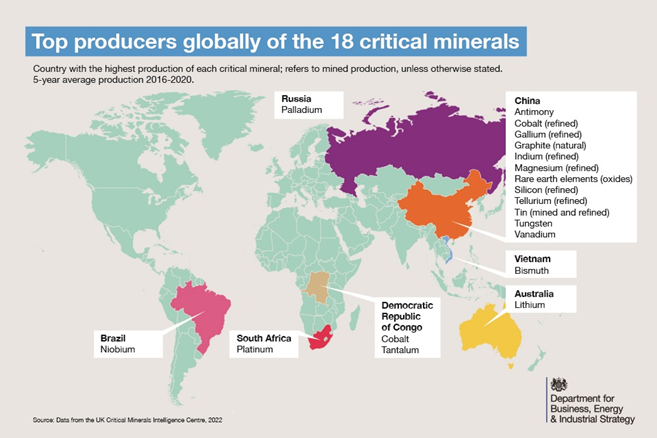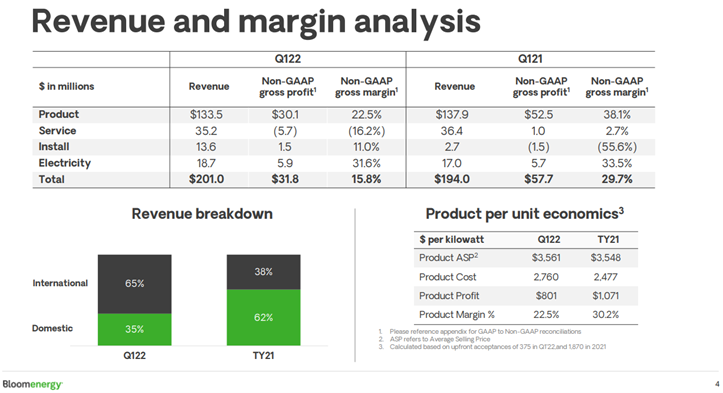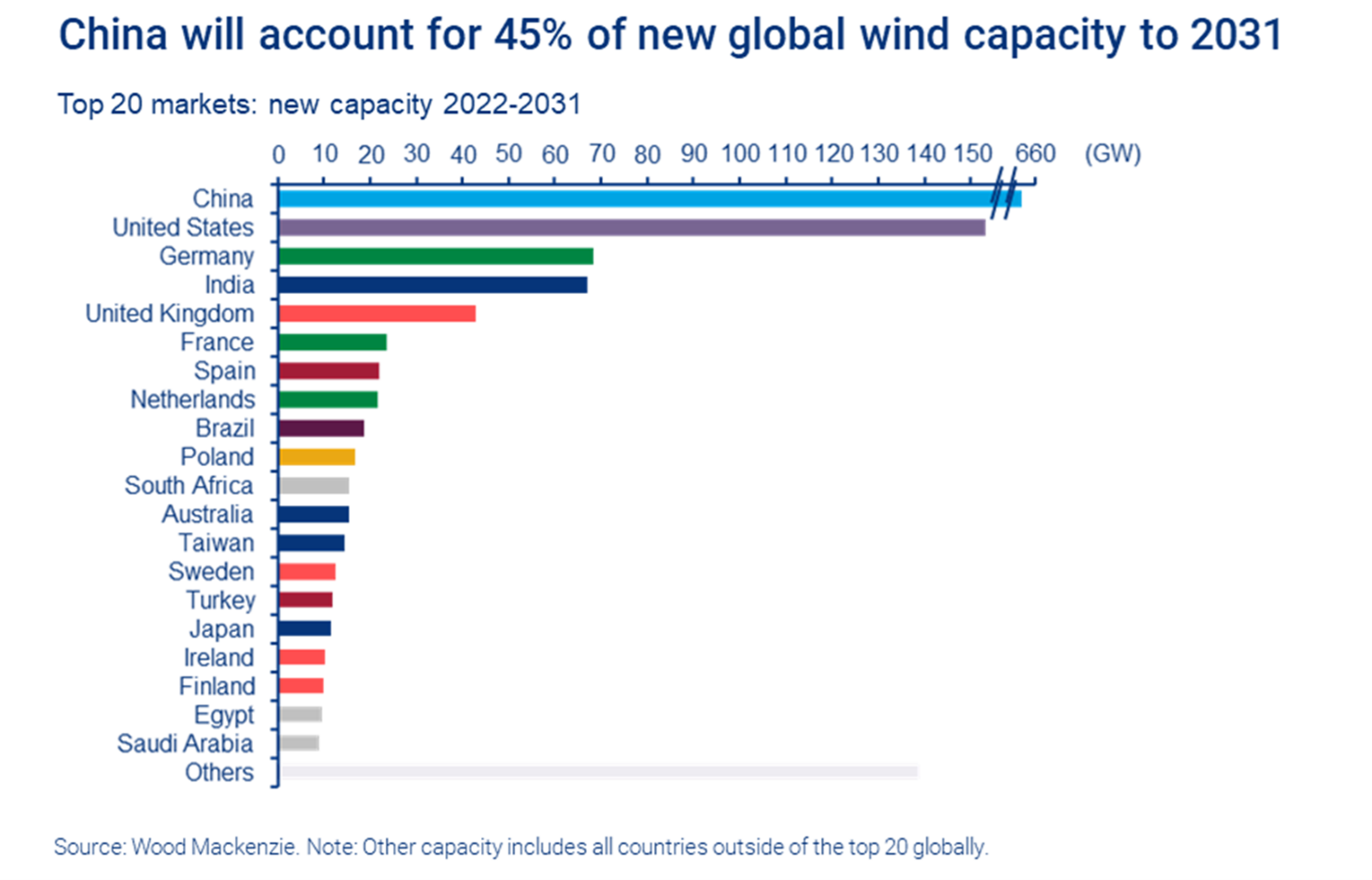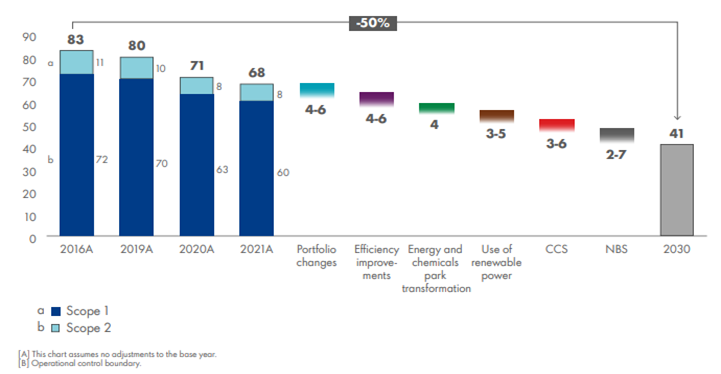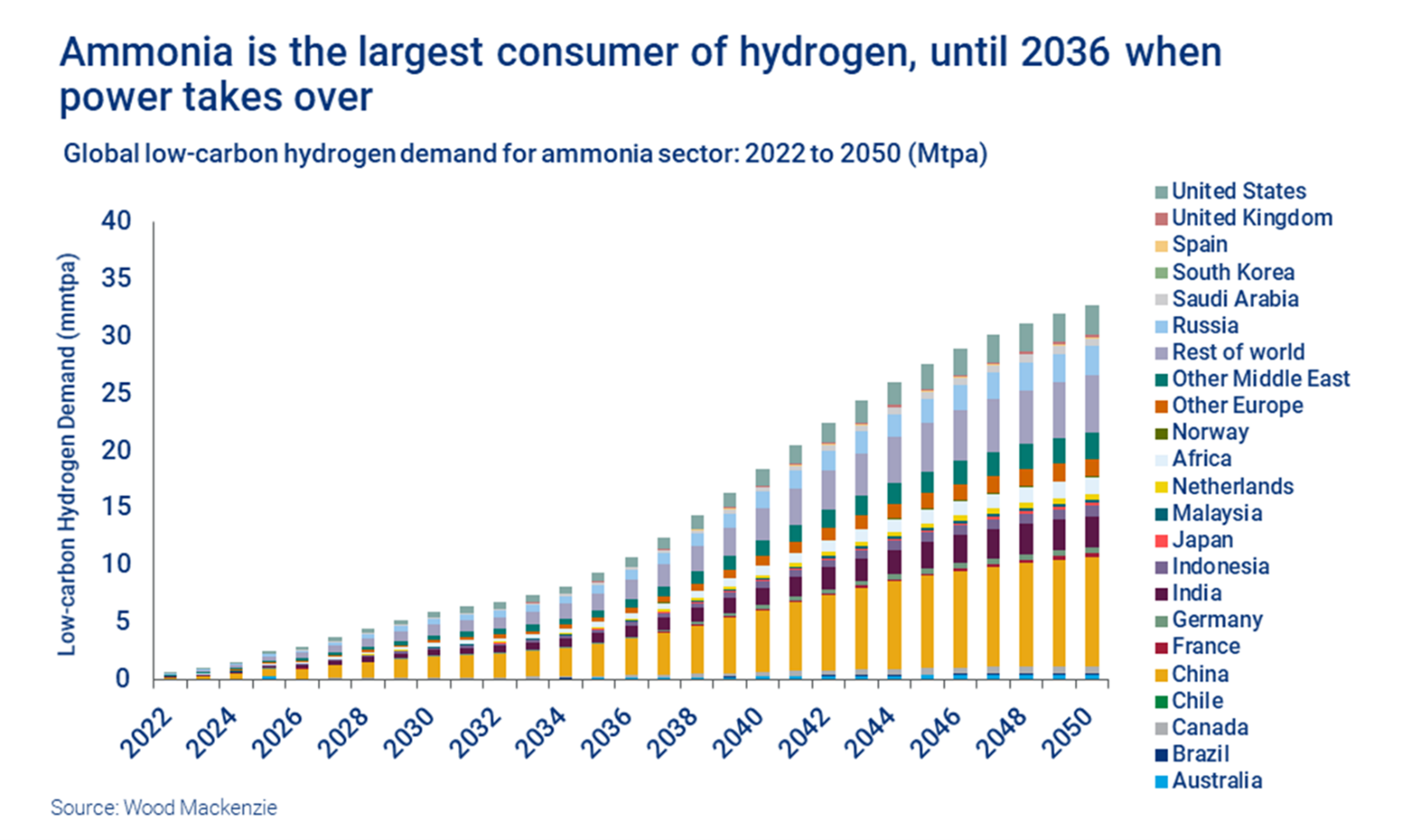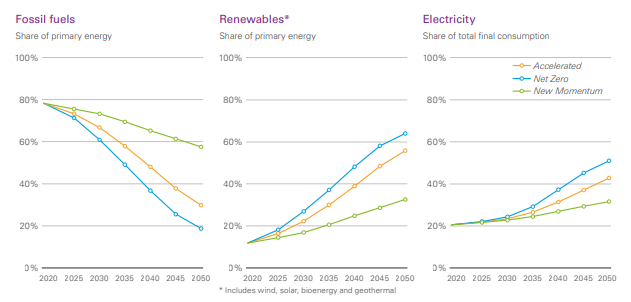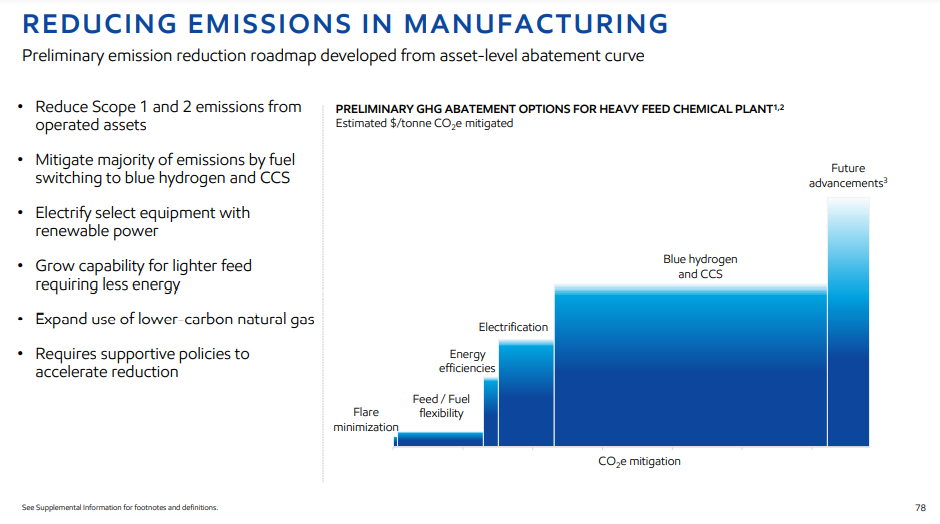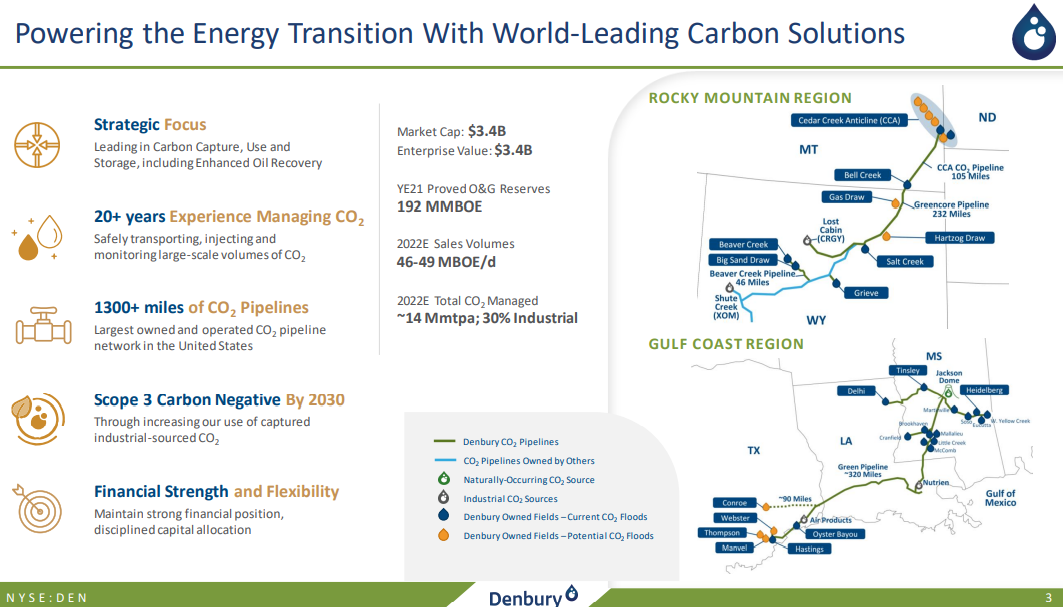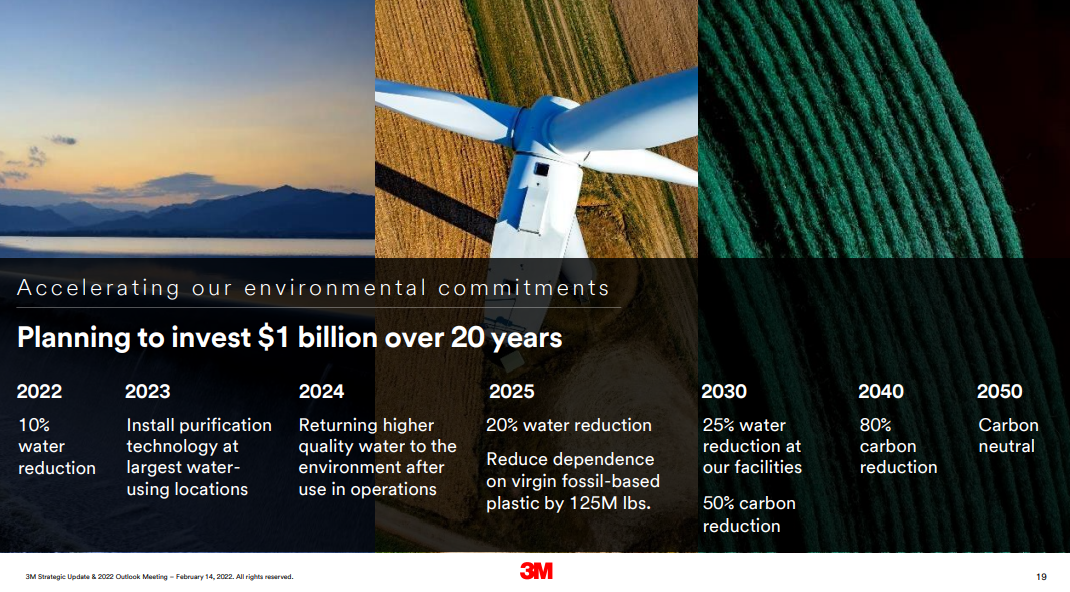We are seeing more focus on supply chains as they relate to the energy transition. Some European countries are realizing what we have noted in prior research - EU Energy Policy: Swapping A Bad Supplier For Something Worse? - switching to an aggressive focus on renewable energy may reduce your energy exposure to Russia but it currently doubles down on your exposure to China. It is very easy to look at the scale of the problem – the share that China has in critical metals, as shown below – the share that China has of solar modules – etc., and conclude that it is too hard, especially in Europe where you will find an environmental lobby trying to stop you doing anything industrial. But the net effect is severe reliance on China. One advantage that the UK now has with its exit from the EU is more industrial freedom and the country could benefit from the right industrial policies that would attract broader energy transition investment. In our ESG and Climate report this week we talked about the U.S. desire to “friend-shore” rather than re-shore because of local investment challenges in the U.S. as a consequence of some of the political issues. The UK could benefit from becoming an industrial partner with the U.S. for some critical materials.
Energy Transition - Lots at Risk and Funding Harder To Find
Jul 22, 2022 2:14:51 PM / by Graham Copley posted in ESG, Sustainability, Metals, ESG Investing, Supply Chain, renewable energy, energy transition, materials, minerals
Tesla And Bloom Driving Renewable Power Demand. CCS Needs To Be Part Of The Answer
May 6, 2022 3:49:31 PM / by Graham Copley posted in ESG, Climate Change, Sustainability, CCS, Renewable Power, EV, energy transition, fuel cells, Bloom Energy, Tesla, electrolyzers, Enbridge
Looking at the Bloom results and reflecting on our many recent client discussions, the low-cost providers of fuel cells and electrolyzers are going to win disproportionately in our view, but whether that is Bloom or others remains to be seen. Lower costs will come with scale, and this should allow the leaders to stay ahead, especially if they control their equipment production as Bloom does. The negative for Bloom is that its equipment production is in the US, which may add costs, but the positive is that it is on-shore and this gives the company more control over delivery in the US. Companies that can scale quickly in this space and other renewable sectors, should see the benefit of economies of scale and this should drive more wins and more economies.
Blown Away By China: Will There Be Equipment For Anyone Else?
Apr 26, 2022 1:25:51 PM / by Graham Copley posted in ESG, Sustainability, raw materials inflation, wind, energy transition, climate, materials, logistic constraints, Siemens Gamesa, wind industry, raw material, equipment
In our ESG and Climate report tomorrow we are focusing on the wind industry and specifically the problems that Siemens Gamesa is facing with execution, costs, and logistics. The estimates for China and the rest of the world in the chart below assume a significant step-up in the rate of installation, and in 2022 we are seeing an industry that is struggling with that. Siemens Gamesa is having problems with its new platform, which had been intended to deliver projects more cheaply from an installed cost basis and an operating costs basis and is perhaps an illustration of what can happen when you are trying to move too quickly – partly because your customers are demanding it. Operational problems at Siemens Gamesa have been compounded by logistic challenges and raw material price and availability, such that current expectations are for the company to break even at an EBITDA level in 2022. This is another great example of the policy and investor disconnects that we see in several aspects of energy transition – we are encouraging investment in front line capacity, but not in the materials and feedstocks needed to feed the front line – metals, natural gas, crops. See our recent body of ESG and Climate work for more on this. These subjects are at the heart of many of the private engagements that we have with several clients in this space.
Shell Saying All The Right Things, But Likely Not Enough
Apr 20, 2022 2:24:59 PM / by Graham Copley posted in ESG, Carbon Capture, Climate Change, Sustainability, LNG, CCS, CO2, Energy, Shell, fossil fuel, carbon values, energy transition, carbon intensity
Shell issued its 2021 energy transition progress this morning and the report contains a lot of detail about what Shell has done so far and what the company intends to do. The report is a record of progress and intent and is targeting both general stakeholders as well as the Shell board and annual meeting, where approval of the plan will be sought. When compared with other reports we have seen from other companies, this summary is comprehensive. It provides some concrete steps to achieving emission goals in 2030 – exhibit below - while remaining appropriately vague about getting to 2040 and 2050 targets. However, we would note how much portfolio changes likely added to the 2016 to 2021 progress – likely proportionately much more than they are expected to contribute from 2022 to 2030. Both renewable power and CCS figure in the 2030 projections below and Shell will need to get moving on the CCS front of it is to sequester 3-6 million tons of CO2 per annum by 2030. The expectations are likely based on the European offshore projects, as it may take longer than 8 years to get permits and investments in place in the US. The US could move faster but the EPA would likely need to grant primacy to at least Louisiana and Texas for things to speed up and we are not convinced that this will happen soon. Like many of the other company 2030 plans that we have seen, it is likely that much of Shell’s progress will come in the last couple of years of the decade – especially on CCS.
Hydrogen Is Likely Not Happening Fast Enough For The IPCC
Apr 6, 2022 12:36:34 PM / by Graham Copley posted in ESG, Hydrogen, Climate Change, Sustainability, LNG, Green Hydrogen, Renewable Power, Ammonia, hydrocarbons, solar, renewable energy, renewables, wind, energy transition, waste, hydro, geothermal
One of the concerns that the IPCC has in its report issued this week is that things are not happening fast enough and the Ammonia analysis in the chart below would support this view. Most of the capacity addition comes post-2030 in large part because project planners cannot see a way to enough cheap power to generate the green hydrogen needed until that time. In our view, since COP26 the transition part of the energy transition has been overwhelmed by advocates of green technology and renewable pathways without much thought about how practical they might be today. Those suggesting transition options are being given very little airtime and as a consequence, we see broad hostility towards anything that is not truly green, regardless of whether the costs or time frames make any real sense. If we do not embrace bold transitionary steps including the use of hydrocarbons with aggressive abatement targets we will not meet any of the shorter-term goals that the IPCC highlights and we are putting hope in renewable and technology development which may come up short. Related to this we see the LNG dilemma in Europe, with the current and medium-term needs very apparent, but a reluctance to sign up for longer-term supply because of an expectation that if all things renewable come to pass, the LNG might not be needed. The Europeans will need to make the longer-term commitment if they are to persuade the US and other potential exporters to build new export terminals.
The Cost Of Reshoring May Push Energy Transition Investments Offshore
Apr 1, 2022 3:29:55 PM / by Graham Copley posted in ESG, Climate Change, Sustainability, LNG, Energy, Dow, energy transition, Canada, Mexico, reshoring, Sempra
Looking at the Sempra chart below, we reflect on some research that we wrote several months ago that talked about a lost opportunity in the US because of the lack of cooperation and coordination in Washington. Energy demand is growing, the demand for materials is growing and the demand for re-shoring is growing, and if the US political and permitting system is either too hostile towards new investment or too cumbersome companies will look for workarounds. The Dow investment in Canada was partly justified by the easier regulatory environment as well as the proposed carbon price. Sempra is looking at Mexico because the ease of permitting for LNG is advantageous and we note Mattel's “near-shoring” in Mexico rather than reshoring. The opportunities for both Mexico and Canada are very significant if we remain mostly directionless in the US. For more see today's daily report.
bp Analysis Shows Steep Challenges Of Energy Transition
Mar 15, 2022 11:36:51 AM / by Graham Copley posted in ESG, Climate Change, Sustainability, Energy, Emission Goals, Net-Zero, bp, renewable energy, renewables, energy transition
The annual review of World energy from bp shows a stark reversal of the company’s position only a short while ago. When the pandemic hit, bp went on record suggesting that we may have seen peak oil demand in 2019. It was an interesting theory and one that we discussed at the time, but it underestimated the impact that aggressive COVID-related stimulus would have on consumers globally and we suspect that bp, like many others, overestimated the rate at which renewables could be added. Now the company is exploring a very different scenario, one in which the current momentum in the energy market continues and the rate of renewable additions slows, either because of more limited capital or because of material constraints – or a combination of both.
ExxonMobil: Illustrating That Energy Transition Can Be Done (With The Right Policies)
Mar 2, 2022 1:14:58 PM / by Graham Copley posted in ESG, Hydrogen, Carbon Capture, Climate Change, Sustainability, CCS, Blue Hydrogen, CO2, ExxonMobil, Net-Zero, carbon credit, carbon cost, energy transition
Playing right into the central argument of our ESG and Climate report is today’s ExxonMobil investor day, and we include a couple of key slides around the company's proposed path to net-zero below. The first slide shows just how much blue hydrogen (with CCS) the company plans to add to offset its emission-generating fuels – the volumes implied in the chart are high.
Lots Of Carbon Opportunities At The Right Price
Feb 24, 2022 1:42:02 PM / by Graham Copley posted in ESG, Carbon Capture, Climate Change, Sustainability, CCS, CO2, Energy, energy transition, crude oil, Denbury, EOR, carbon capture and storage
The Denbury release is a great example of something that we discussed in our ESG and Climate piece yesterday. The company is putting stakes in the ground concerning carbon capture and storage but is only really spending on its EOR opportunities, which of course look really interesting today. While the 45Q credit for EOR helps, the main driver is the incremental crude oil volumes that you can pull out of the ground because of the CO2 injection – the higher the price of crude oil the greater the value of EOR. Regardless of the tax credit, the economics of EOR should look very good today and it is not surprising to see several initiatives from Denbury given that it has a lot of existing infrastructure for CO2. The CCS plans are no different than some of the projects we discussed yesterday – they are stakes in the ground – marking territory – but unlikely to move forward without higher incentives. One of the core topics of our report yesterday is whether the conflict in central Europe will turn attention away from energy transition and energy security for tomorrow, because of the acute distraction of both energy and national security today.
Water: The Less Discussed ESG Topic
Feb 15, 2022 12:14:52 PM / by Graham Copley posted in ESG, Sustainability, Renewable Power, renewable energy, energy transition, water, Agriculture, water supply, 3M, Michelin, water shortages, clean water, health, desalination
It is interesting to note both 3M and Michelin addressing water in their ESG narratives - Exhibits below. Water is not getting a lot of air time from the ESG crowd yet, but it is very much on our radar and we will publish our first water index in tomorrow’s ESG and Climate report.


